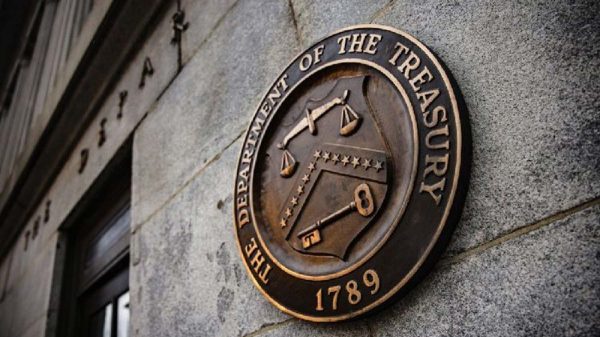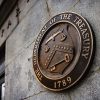Investor confidence has taken a hit as U.S. stock markets resumed their downward trend on Tuesday, driven by growing concerns over the economy and a potential recession. This pessimistic sentiment comes on the heels of troubling economic surveys and lackluster market performance across the globe.
Markets Slump as Optimism Fades
The U.S. stock market suffered significant losses on Tuesday, erasing the gains made during Friday and Monday’s brief rally. The S&P 500 dropped by 1.07%, the Dow Jones Industrial Average fell 0.62%, and the Nasdaq Composite experienced the steepest decline, losing 1.71%. Among individual stocks, Tesla shares plunged over 5% after RBC Capital Markets revised its price target downward for the electric vehicle maker.
Economic uncertainty continues to weigh heavily on Wall Street. Anticipation of the Federal Reserve’s monetary policy decision on Wednesday has left investors bracing for the worst, with most market-watchers expecting no changes to the current interest rate. This lack of action is unlikely to provide the optimism needed to reverse the current sentiment.
Global Markets Feel the Pressure
The negative mood extended across Asia-Pacific markets on Wednesday. Japan’s Nikkei 225 slid 0.2%, reflecting investor caution ahead of the Bank of Japan’s decision to maintain its key policy rate at 0.5%. On the other hand, South Korea’s Kospi index bucked the trend, gaining 0.7%, as investors found pockets of optimism in the region.
The Bank of Japan, however, struck a cautious tone, warning of “high uncertainties” in Japan’s economic activity and global trade. This uncertainty, compounded by U.S. President Donald Trump’s reciprocal tariffs set to take effect in April, has further clouded the global market outlook.
Recession Fears Intensify
Recent economic surveys have painted a grim picture of the U.S. economy. The University of Michigan’s Survey of Consumers, released last week, revealed that consumer sentiment has fallen to its lowest level since 2022. Similarly, the CNBC Fed Survey for March showed an alarming increase in the probability of a recession, rising to 36% from just 23% in January.
Adding to the concerns, UCLA Anderson, a leading economic forecasting organization, issued its first-ever “recession watch” warning on Tuesday. The Bank of America’s Global Fund Manager Survey echoed these worries, reporting the largest pullback in investor sentiment since March 2020.
Tech Giants Make Bold Moves Despite Challenges
Amid the market turmoil, tech companies continue to make headlines with significant developments. Nvidia announced new advancements at its GTC conference, unveiling the Blackwell Ultra AI chips and the next-generation Vera Rubin graphics processing unit, expected to hit the market in 2026. Nvidia also revealed a partnership with General Motors to integrate AI in vehicles and driver-assistant systems.
In another major development, Google announced its largest acquisition to date. The tech giant has agreed to purchase Wiz, a New York-based cloud security startup, in a $32 billion all-cash deal expected to close in 2026. Analysts view this as a litmus test for mergers and acquisitions in 2025, setting the tone for future deals.
Geopolitical Developments: Ceasefire in Ukraine
On the geopolitical front, U.S. President Donald Trump and Russian President Vladimir Putin reached a “narrow” ceasefire agreement on Tuesday to address the ongoing conflict in Ukraine. The ceasefire focuses on halting attacks on energy and infrastructure, marking the first step toward a broader peace deal. Trump’s announcement on Truth Social highlighted the significance of this agreement, which followed a 90-minute call between the two leaders.
China Takes Steps to Boost Consumption
In Asia, China is taking proactive measures to address weak consumer spending and a declining birthrate. The Chinese government announced plans to introduce child care subsidies to encourage childbirth and free up household income for discretionary spending. While the details remain vague, the National Health Commission is reportedly drafting an operational plan to implement the subsidies.











